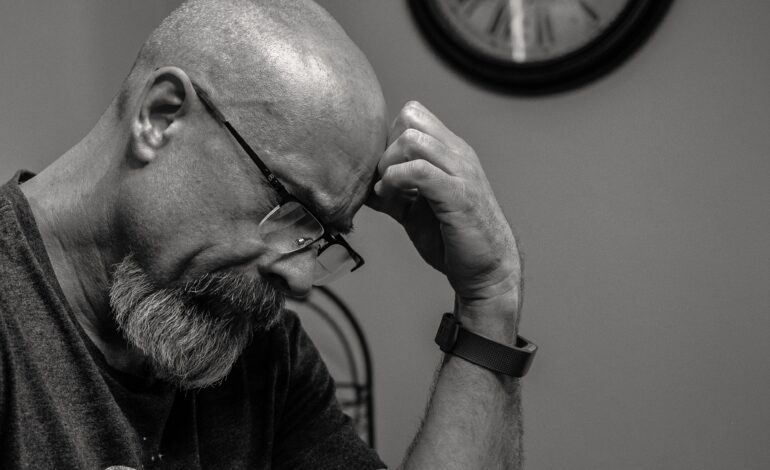
If you’re reading this, you probably already know why it’s important to develop critical thinking skills. But just in case you need a refresher:
Critical thinking is valuable in various aspects of life, including problem-solving, decision-making, and analyzing information. We all make decisions every day—whether it’s what to eat for dinner or whether or not to go out with that guy who keeps texting you. But how often do we stop and think things through? When we make decisions based on gut instinct instead of facts and evidence, we run the risk of making choices that don’t serve us well—or even hurt us.
This guide will help you develop effective critical thinking skills, here are seven tips to help you build and enhance your critical thinking skills:
Ask thought-provoking questions
Thought-provoking questions are the secret weapon of any great leader. Asking the right kinds of questions can make you more insightful, encourage deeper thinking and exploration of different perspectives, and help clarify information or seek underlying causes and consequences.
So here’s the thing: asking insightful questions isn’t just important when you’re talking to people—it’s important when you’re talking to yourself, too. And if you don’t have a habit of doing that? Well, then it’s time to cultivate one!
You can start by making a list of all the questions that come up in your head during the day. It could be something like “Why did X happen?” or “How do I feel about Y?” or even “What does Z mean?” Then try to answer them as best as possible—not just with logic but with empathy and compassion for others. If someone asks you a question, try answering it from their perspective instead of your own (and vice versa). This will help you see things from different angles and give you new insights into what’s going on around you.
Seek diverse perspectives
We’re all human—and that means we’re each just as susceptible to bias as the next person. But biases can be dangerous when they keep us from taking in information that challenges our views and accepting new ways of thinking.
So how do you make sure you’re not just hearing one side of the story? It’s simple: seek out diverse perspectives!
It’s important to expose yourself to a wide range of opinions and viewpoints. This helps you challenge your own biases, broaden your understanding, and consider alternative solutions. It also makes it easier for you to be open-minded when someone else challenges your viewpoint. Actively listen to others, engage in meaningful discussions, and be open to changing your viewpoint based on new information.
Evaluate evidence
The best way to develop the ability to critically evaluate information and evidence is by practicing with sources that you already know well. For example, if you have a friend who’s very good at science, ask them to explain something they know well to you. Ask them what research they did on the topic, how they went about it, and why they chose the methods they did. Then try to explain it in your own words. You’ll learn more about your friend’s perspective as well as how you can improve your own understanding of the subject matter.

You can also practice evaluating evidence by reading books or articles that have opposing viewpoints on a topic that interests you. Try to understand both sides of the argument, then decide which one makes most sense based on what evidence each side presents and how convincing those arguments are for each point of view.
Analyze assumptions
Assumptions are the things that people take for granted, but that aren’t necessarily true. People make a lot of assumptions when they reason and draw conclusions. It’s important to be aware of your own assumptions and those of others. When you identify underlying assumptions that influence reasoning and conclusions, you can better evaluate the reliability and validity of arguments and avoid making hasty judgments.
For example, if someone is trying to convince you that they’re right about something, it would be good to know what their underlying assumptions are before accepting their conclusions as correct. It’s also important to consider whether other people might have different underlying assumptions than you do—and whether those different assumptions would lead them to different conclusions than yours would lead you!
Practice logical reasoning
If you want to build effective critical thinking skills, you must practice logical reasoning.
When it comes to logical reasoning, we’re talking about a lot more than just being able to spot a fallacy. We’re talking about understanding the principles of logic and applying them to real-world problems. We’re talking about being able to analyze complex issues, identify patterns, and draw well-supported conclusions.
One way to sharpen your logical reasoning skills is by learning and applying principles of logic. There are three main types of deductions: categorical, hypothetical, and disjunctive. Induction refers to drawing conclusions based on observations or data rather than relying on previous assumptions or beliefs. Syllogisms are two-part arguments that use deductive reasoning to prove a point or conclusion by using one or more premises (the things you think are true) as support for an additional conclusion (something you want to prove).
Now that you know how to build effective critical thinking skills, you can start using them in your daily life. Remember that it takes time and practice to develop these skills, so don’t be discouraged if it doesn’t come easily at first. With these tips as a guide, you’ll be able to develop a more analytical and thoughtful approach to decision-making and problem-solving.
RUCHI RATHOR Founder & CEO
Payomatix Technologies Pvt. Ltd.
FOUNDER AND INVESTOR | PAYMENTS PROCESSING EXPERT | MERCHANT ACCOUNT SOLUTIONS | WHITE LABELLED PAYMENT GATEWAY | Dreamer, Creator, Achiever, Constantly Evolving
Website Ruchi Rathor: https://ruchirathor.com
Website Healing Heart https://thehealingheart.me/
Instagram https://www.instagram.com/_ruchirathor_/
LinkedIn https://www.linkedin.com/in/ruchirathor12/
Facebook https://www.facebook.com/ruchi.rathor.magnificient
Tumblr https://www.tumblr.com/blog/ruchirathor-thehealingheart
Medium https://medium.com/@ruchirathor_23436









